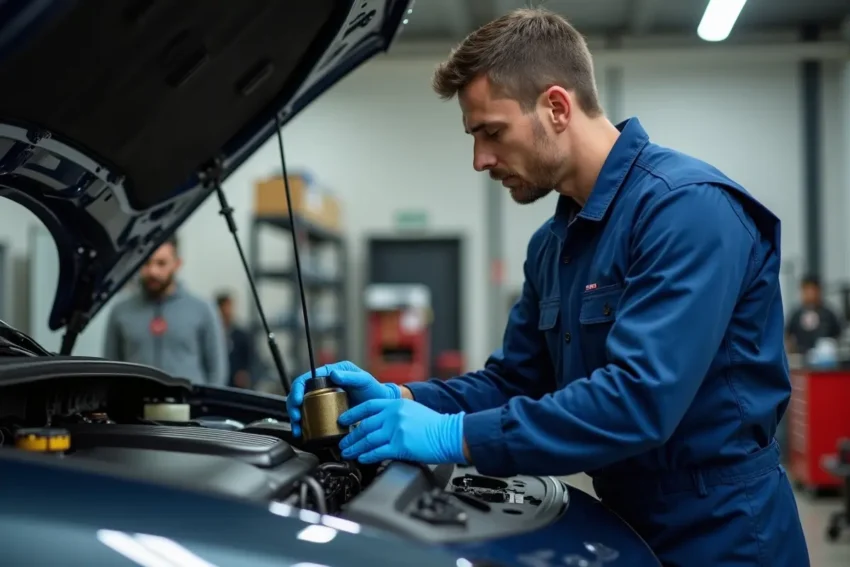How Routine Car Maintenance Saves Time and Money

Taking a proactive approach with your vehicle’s routine care pays dividends in the long run. Undertaking tasks like timely oil changes, fluid checks, and tire maintenance doesn’t just ensure your car runs better—it’s also a smart financial decision. Knowing how long scheduled maintenance takes can help you plan your day more efficiently, reducing time spent on unexpected repairs and vehicle breakdowns.
Routine car maintenance addresses wear and tear before it escalates into severe mechanical issues. Not only does this keep your vehicle safe and dependable on the road, but it also means fewer stressful surprises. Making minor investments in care today helps you manage your budget and avoid sudden, massive bills for major repairs in the future.
Regularly maintaining your car often leads to improved everyday driving experiences. Well-cared-for vehicles are not only more reliable but usually retain their value better than those with neglected service histories. Plus, simple preventative tasks done at the right intervals can extend your car’s lifespan by several years, allowing you to get the most out of your investment.
Recent findings highlight that sticking to your manufacturer’s recommended schedule can save thousands in the long term. These savings come from improved fuel efficiency, fewer costly repairs, and reduced downtime associated with breakdowns.
Contents
Preventing Costly Repairs
The most significant financial advantage of consistent vehicle care is catching minor problems before they develop into expensive repairs. For example, replacing a fraying serpentine belt may cost under $100, but if it breaks while you’re driving, it can cause damage to major engine components, leading to repairs that can run into the thousands. Similarly, regular oil changes are a fraction of the cost of repairing or replacing an engine seized by neglect.
Preventive maintenance also addresses less obvious but equally critical issues, such as checking brake pads and fluid levels, which ensures all safety systems are functioning correctly. Ignoring simple fixes often leads to larger failures, as documented by auto experts at Consumer Reports.
Enhancing Fuel Efficiency
Maintenance isn’t just about avoiding catastrophic repairs—it also affects your wallet at the gas pump. Inflating your tires to the recommended pressure, replacing old air filters, and ensuring your engine runs smoothly can all help improve fuel economy.
According to Energy.gov, maintaining proper tire pressure alone can improve gas mileage by over 3%. These efficiency gains may seem small at first, but they accumulate into substantial savings over the lifetime of your vehicle.
Extending Vehicle Lifespan
An often-overlooked benefit of routine upkeep is the extension of your car’s service life. Essential tasks like regularly rotating your tires, getting your alignment checked, and topping off fluids prevent unnecessary wear. As a result, you’ll enjoy more years—and miles—with your vehicle, postponing the need to replace it and minimizing depreciation from neglect.
Consumer Reports notes that cars with comprehensive maintenance histories have higher resale values, as buyers value well-maintained vehicles for their reliability and expected longevity.
Time-Saving Benefits
While regular maintenance visits do require a time investment, it is minor compared to the inconvenience and downtime caused by surprise breakdowns. Scheduling and completing your service at predictable intervals means less disruption to your daily routine. Car owners who stick to recommended maintenance schedules experience fewer sudden failures, reducing both repair wait times and the hassle of arranging alternate transportation.
Smart Driving Habits
The way you drive directly affects your vehicle’s health. Gentle starts, smooth acceleration, and avoiding hard stops put less stress on vital engine and brake components. By practicing defensive, steady driving habits, you can reduce wear and extend the operational life of your car’s systems. Avoiding aggressive driving not only boosts your car’s longevity but also improves your safety and fuel economy.
DIY Maintenance Tips
Some basic maintenance tasks can be performed at home, saving you trips to the mechanic and associated costs. Regularly checking oil, coolant, and windshield wiper fluid levels keeps critical systems running smoothly.
Maintaining recommended tire pressure is simple with an inexpensive pressure gauge and can have noticeable effects on both safety and efficiency. Consulting your owner’s manual for recommended intervals equips you to handle simple checks independently and spot issues early.
Choosing a Reliable Mechanic
For more complex repairs and preventive tasks, entrusting your car to a skilled, honest mechanic is essential. Look for professionals certified by organizations like the National Institute for Automotive Service Excellence (ASE), and read customer reviews for transparency and fairness.
Having a relationship with a trustworthy shop provides peace of mind, as routine service and minor fixes will be addressed promptly and thoroughly, minimizing both your time and financial investment.
Conclusion
Regular car maintenance is a wise investment in a vehicle’s performance, reliability, and overall cost of ownership. By committing to preventive care, you minimize unplanned expenses, enhance fuel efficiency, and keep your car running for years to come.
Ultimately, a consistent maintenance schedule means fewer headaches, less time lost to repairs, and a better return on your investment. Whether you perform simple tasks yourself or rely on a reliable mechanic, a little attention today can save you both time and money down the road.



